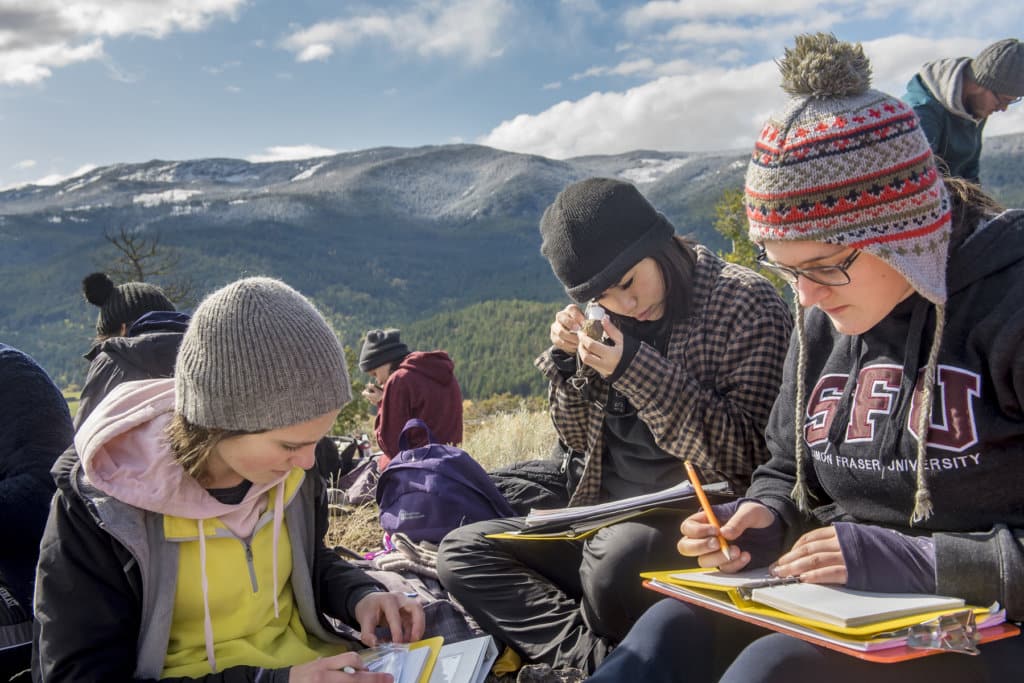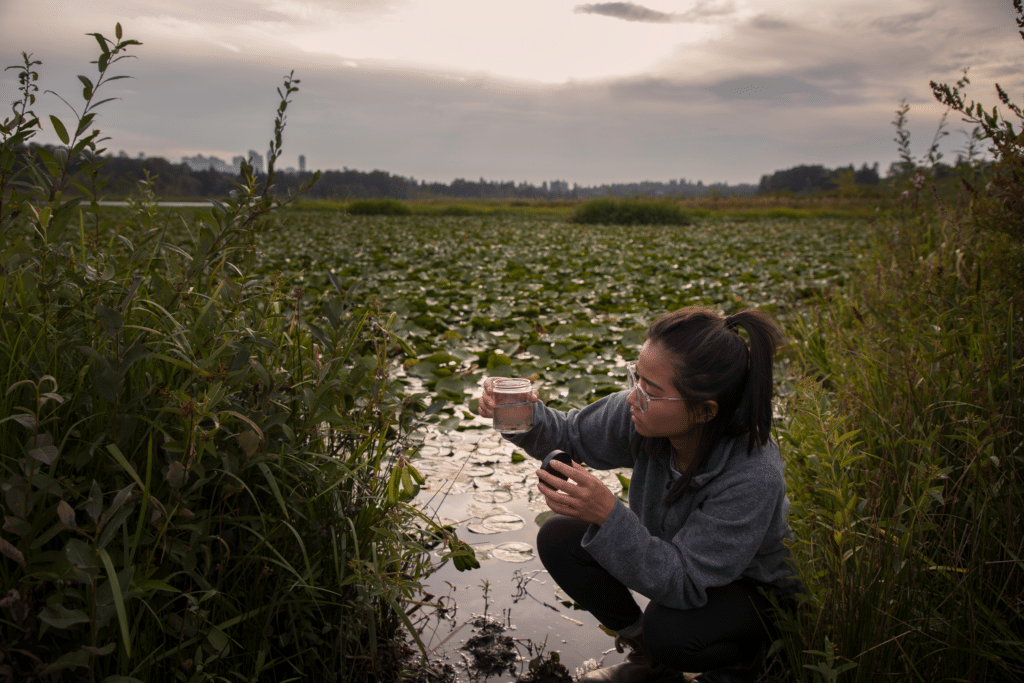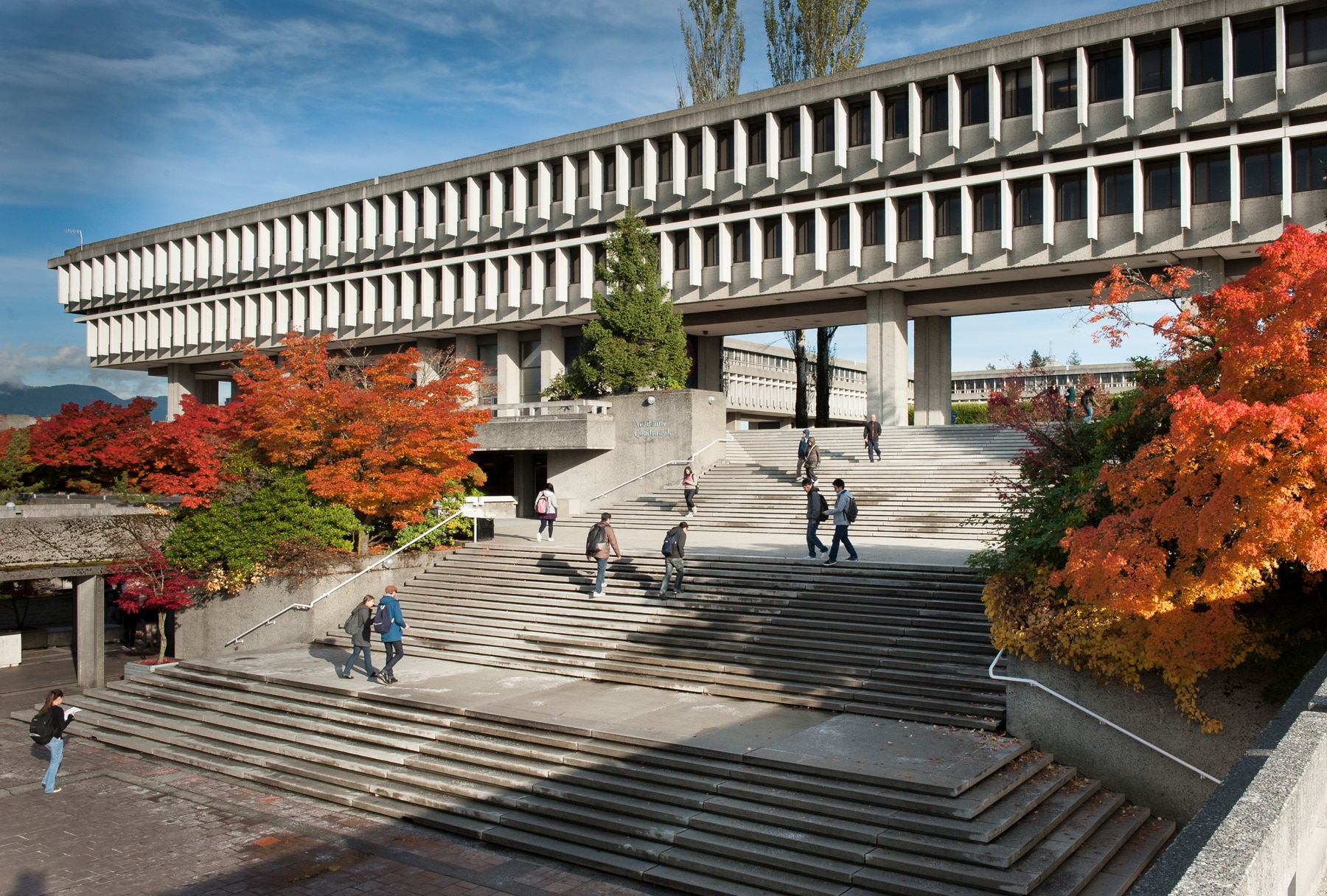At Simon Fraser University, Hasini Basnayake got to step out of her comfort zone — and grew a lot personally and professionally. “When I started my journey as an international student in Environmental Science, I didn’t have a clear idea of where this degree could take me, as I am sure is the same with many freshmen,” she says.
Then she was hired for an internship “It was one of the best decisions I made during my undergraduate career,” she says.
During the paid internship, Basnayake was a GIS Coordinator at the Aquaculture Management Division, Department of Fisheries and Oceans Canada (DFO). “My role involved analyzing and processing aquaculture farm location data to produce federally distributed maps of marine finfish, shellfish and freshwater aquaculture facilities in British Columbia” she says. “I also hosted a series of presentations on data visualization, management, and sharing capabilities of the Federal Geospatial Platform (FGP). I produced location maps and top-view/side-view diagrams for the Pacific Region Aquaculture Application Guidebooks found on the DFO website.”
Basnayake’s series of achievements is typical of SFU students. As the first Faculty of Environment in Western Canada, it offers world-class programs amidst an intimate, picturesque setting. It welcomes all students – including those transferring from other universities – and works with their strengths to help shape them into environmental consultants, policy analysts, sustainability entrepreneurs and more.

Simon Fraser University students learn within and beyond the classroom, including at scenic locations in Canada’s great outdoors. Source: Simon Fraser University Faculty of Environment
Teaching, research and experiential learning here are world-class — as are its undergraduate programs. Each is tailored to meet a student’s individual interests while also being relevant to today’s workplace needs.
Take the Bachelor of Environment in Resource and Environmental Management, for example. Professors like Tammara Soma, an urban planning professor with the School of Resource and Environmental Management, tackle food issues from farm to table to dump — an increasingly topical area in a world grappling with rising food insecurity. “Food security may not be what you’d expect from a planning professional, but it’s an important part of building resilience in individuals, cities and for the planet,” she says.
Thanks to a Faculty that houses these greats, students can leverage their wealth of knowledge so that they may one day contribute solutions — the kind that can make a difference. “When we waste food, we also waste water, fossil fuels, minerals, resources and labor,” she says. “I collaborate with water experts, biologists, ethnobiologists and forestry experts to explore solutions together.” The same quality applies to those who major in Environmental Science, Global Environmental Systems and Physical Geography.
That’s something students like Jijie Xu appreciates. He envisioned a career where he could crunch numbers and discover environmental solutions. At the School of Environmental Science, he tailored his degree to combine his passion with a purpose.
“I thought environmental science was about the impact of humans on the environment,” says Xu, who studied environmetrics. “Turns out, it’s much more. It’s blending statistics, mathematics, biology, chemistry and physics to find environmental solutions.”
With this knowledge, he tested his theory in his internship experience. At the Centre for Heart Lung Innovation at St. Paul’s Hospital, he used data and statistical models to test how air quality factors – like smoke from forest fires or cannabis – can impact lung function.

Programs in the Faculty of Environment strive to provide you with an actionable education. Source: Simon Fraser University Faculty of Environment
“I experienced and learned more than I could possibly have imagined,” Xu says. “Data management is more than crunching numbers. It combines different fields, like computer science and applied biology, to solve real-world problems.”
Undergraduate students at the Faculty of Environment have the chance to engage in meaningful research too. Resource and Environmental Management graduate Stirling Hillman completed a co-op term with the City of Vancouver and worked as an undergraduate research assistant.
Likewise, Environmental Science undergraduate student Jorrin Lenton received funding from the Natural Sciences and Engineering Research Council of Canada and an Aiden Serr Memorial award to further the research on predicting and alleviating wildfires. “I am excited to have received this funding and research opportunity as it allows me to apply the knowledge that I have learned throughout my undergraduate degree in a way which makes a difference in the community,” says Lenton.
Apply here or click here to find out more about Simon Fraser University’s Faculty of Environment.
Follow Simon Fraser University Faculty of Environment on Facebook, Twitter and Instagram.











